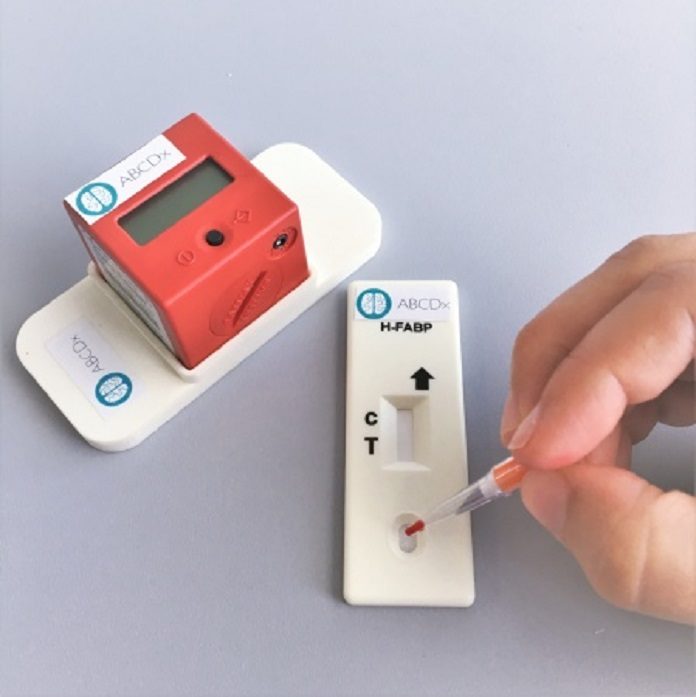In today’s date, CT Scan is the only reliable method to detect traumatic brain injury and suggests diagnosis accordingly. But the facility is available only in a few hospitals. The major drawback of this method that it is expensive and in addition exposes patients to radiations.
Now, scientists at the University of Geneva in collaboration with the Hospitals of Barcelona, Madrid, and Seville have come up with a new device that holds the potential to diagnose mild traumatic brain injury.
The device dubbed as Point-of-Care Test (POCT) works by analyzing protein levels in blood flow using a single drop of blood. According to scientists, this device could potentially reduce the cost expenditure on medical examinations.
Jean-Charles Sanchez, a professor at the Department of Internal Medicine of Specialties said, “We wondered if it was possible to isolate certain proteins whose presence in the blood increases in the event of mild traumatic brain injury. Our idea was to find a way to do a quick examination that would allow, during a boxing or American football match, for example, to determine whether the athlete can return to the field or if his condition requires hospitalization. The opposite of the CT Scan, an exam that lasts a long time and cannot be done anywhere.”
During the shock therapy, some brain cells some brain cells gets damage and thus release the protein they contain. Scientists then compared the blood of patients admitted for mild traumatic brain injury but diagnosed as negative with that of patients actually suffering from a brain lesion.
Later, using a method called proteomic analyses, they identified the presence of a brain injury: H-FABP, Interleukin-10, S100B, and GFAP.
Jean-Charles Sanchez said, “We have noticed that the H-FABP level alone makes it possible to confirm that there is no risk of trauma in one-third of patients admitted after a shock.”
The device involves a rapid diagnostic test (POCT) called TBIcheck, inspired by the principle of pregnancy testing: by placing a single drop of blood on the well of a small 5cm plastic case, the patient knows within 10 minutes whether there is a risk of mild trauma, namely whether or not his H-FABP level is higher than 2.5 nanograms per millilitre of blood.
Jean-Charles Sanchez said, “If a lane appears, the injured person must go to a hospital for a CT scan, if there is nothing, he can go home safely!”
“In case of doubt when reading the result, a small reader, the Cube Reader, can be installed on TBIcheck. It will display the word “positive” or “negative” and send the result to the patient’s or caregiver’s smartphone via Bluetooth. No more doubts!”
“Today, our research shows that the results are even more accurate when we combine H-FABP and GFAP levels. We are currently preparing an even more effective TBIcheck, which will allow 50% of patients to be sent home, but which requires an increase in the sensitivity of the test that receives the blood. ABCDx’s ultimate goal is to bring to market biomarkers capable of diagnosing brain trauma, stroke, and aneurysms. Biomarkers are a mine of information on patients’ state of health, it is up to us to decode them.”
Scientists reported their results in the journal PLOS One.
